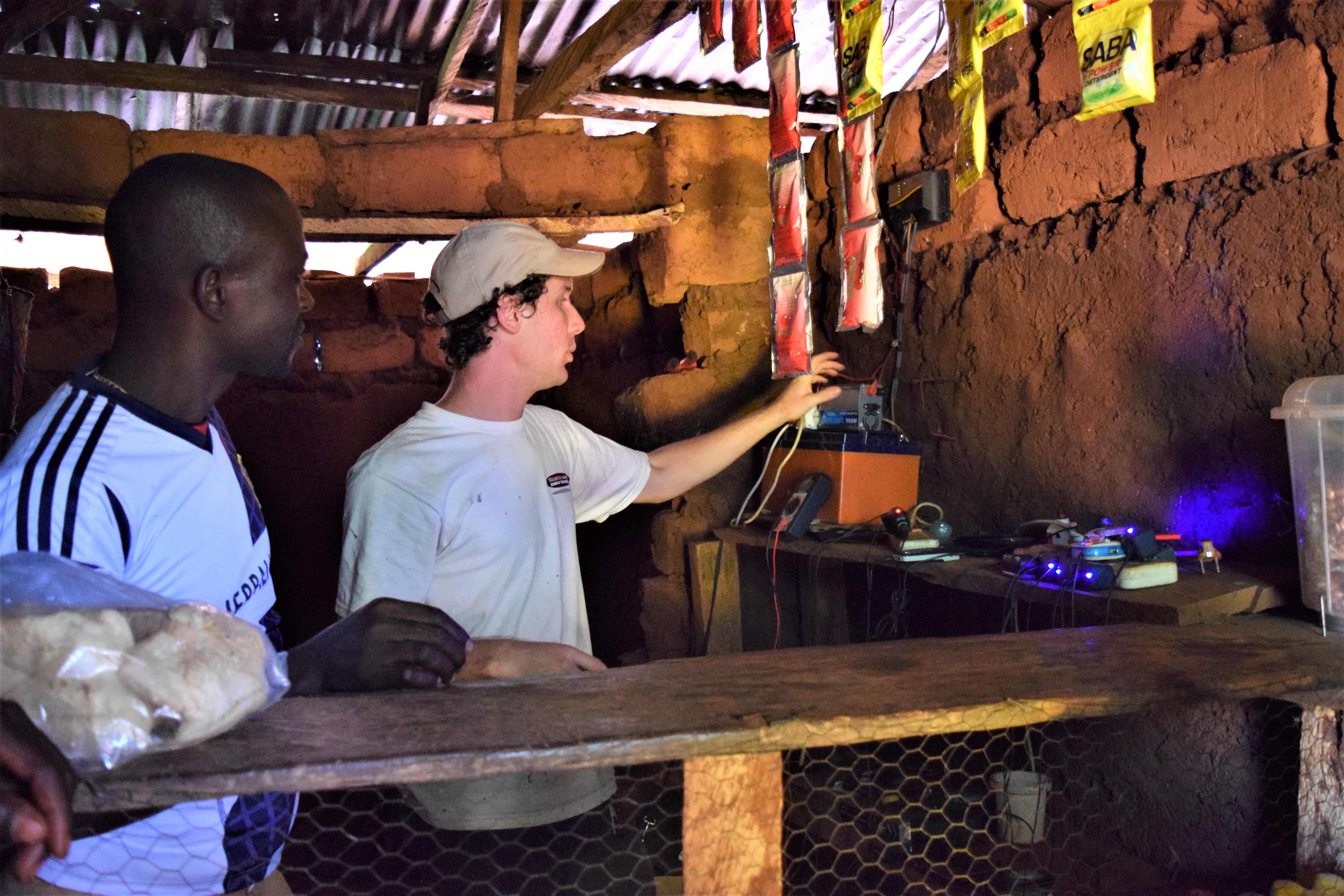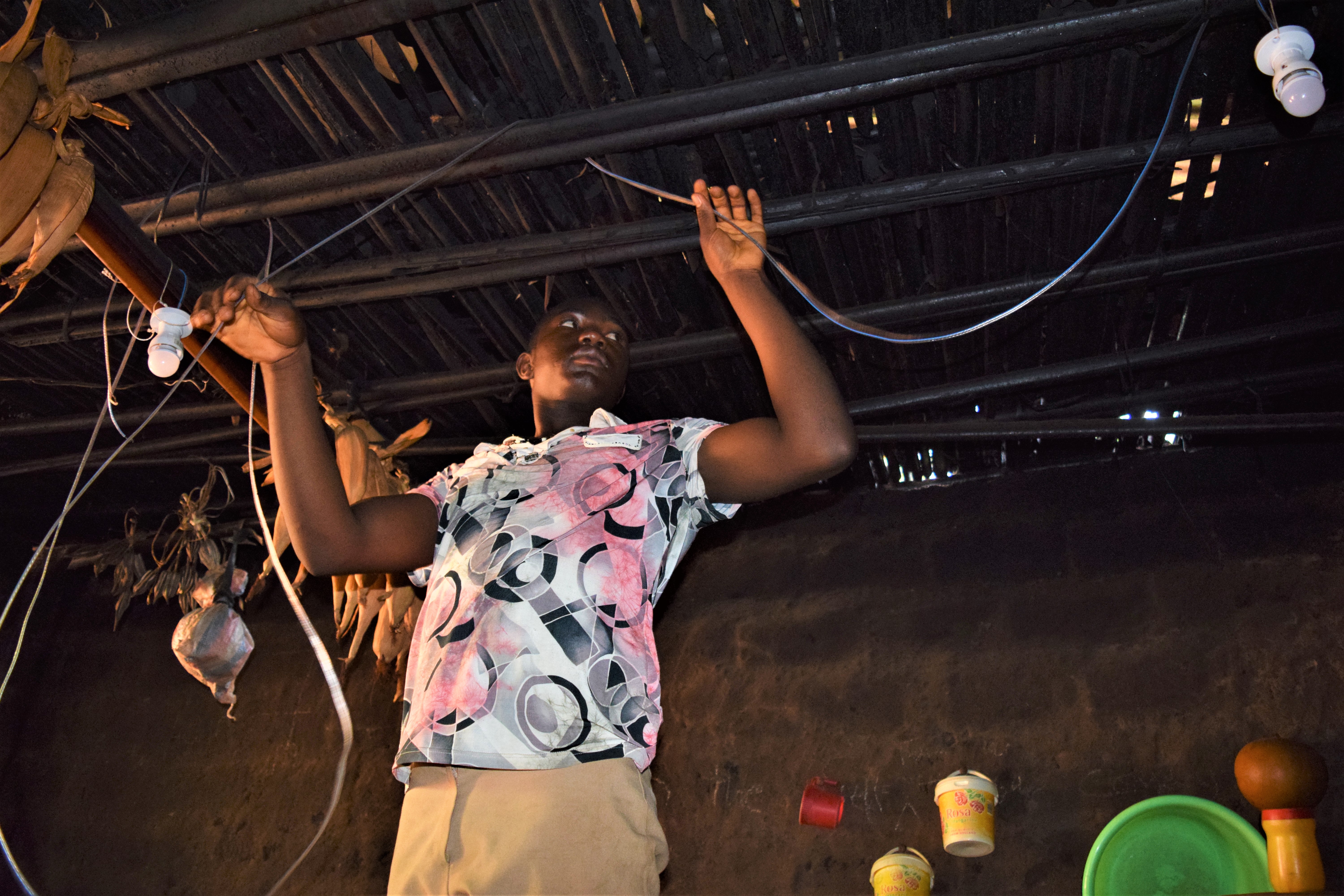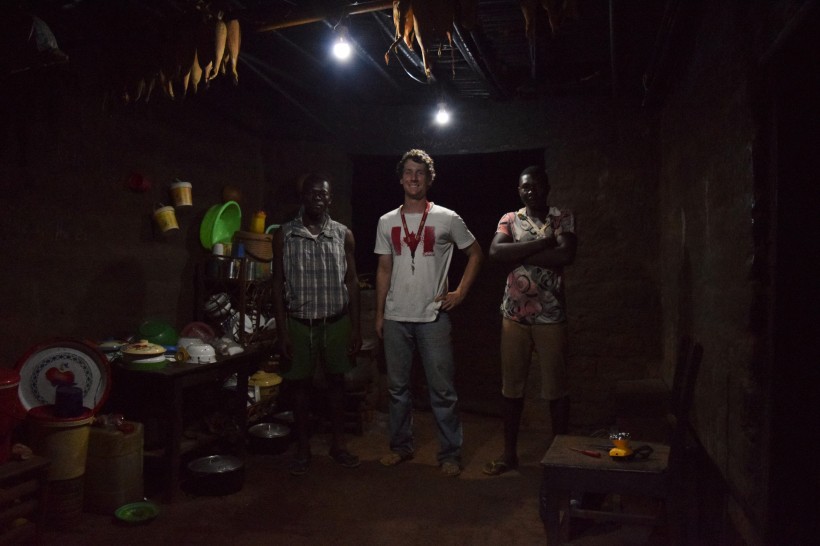Mbissa Energy, a Fredericton-based startup devoted to delivering electricity to remote areas, showcased its mini-home that is 100 per cent solar powered last Thursday.
The showcase, open to investors, partners and media, demonstrated how Mbissa Energy’s business model could help improve the lives of people in under-developed countries by harnessing the power of renewable resources like solar energy.
Mbissa Energy installs a centralized power hub within community centres. Local residents can come to the centre to collect “munong micra”, which translates “fire of the foreigner”, and bring it back to their homes.
Caleb Grove, the founder of Mbissa Energy, started the project two years ago in Mbissa, a small island in the Northwest region of Cameroon, in West Africa. Grove lived for nearly a decade on the island, where his parents were missionaries.
Living in Mbissa, Grove saw how his community-centralized model is better suited and more sustainable for such communities than other developmental efforts.
“We’ve seen enough of people going in to a place and driving an industry to the ground and putting people out of work,” said Grove in an interview.
“We’re that missing link in social development that makes this whole thing work, not just today but next year and the year after that.”

Mbissa Energy built 40 renewable energy installations in homes, clinics, and businesses on and around Mbissa, and services over 240 people. Grove also helps to train locals to maintain the technology for when his team leaves.
Grove’s team installs a centralized solar station for locals to charge batteries that can power generators at their home. Buyers can fall into one of four customer tiers based on their specific needs and power requirements.
“They carry their battery, which is about the size of a motorcycle battery, drop it off at the charging station and then when it's charged they can take it back to their farm, or home and use that electricity for about a week.”
The cost is roughly $30 a month for lower tier customers who live well below the poverty line of almost $2 a day. Some higher tier customers have the energy source installed on their own property.

For 2018, Grove said Mbissa Energy will get off the island and expand into communities in Northwestern Cameroon where there is a market potential of nearly 300,000 people. Grove says Mbissa Energy hopes to capture about 40 percent of that market over the next three years.
Grove plans to return to Cameroon in January to train another team of technicians to finish installations across the entire island of Mbissa.
Mbissa Energy was launched out of the Masters in Technology, Management and Entrepreneurship program at the University of New Brunswick and received $15,000 in funding from Energia Ventures, the university accelerator.
Grove said he wants to start a crowdfunding campaign to help support his 2018 goals but the funding isn’t what fuels his drive.
“I would keep doing this even if I didn’t make a penny.”
Read our recent report on the expansion plans of UNB's TME program.










